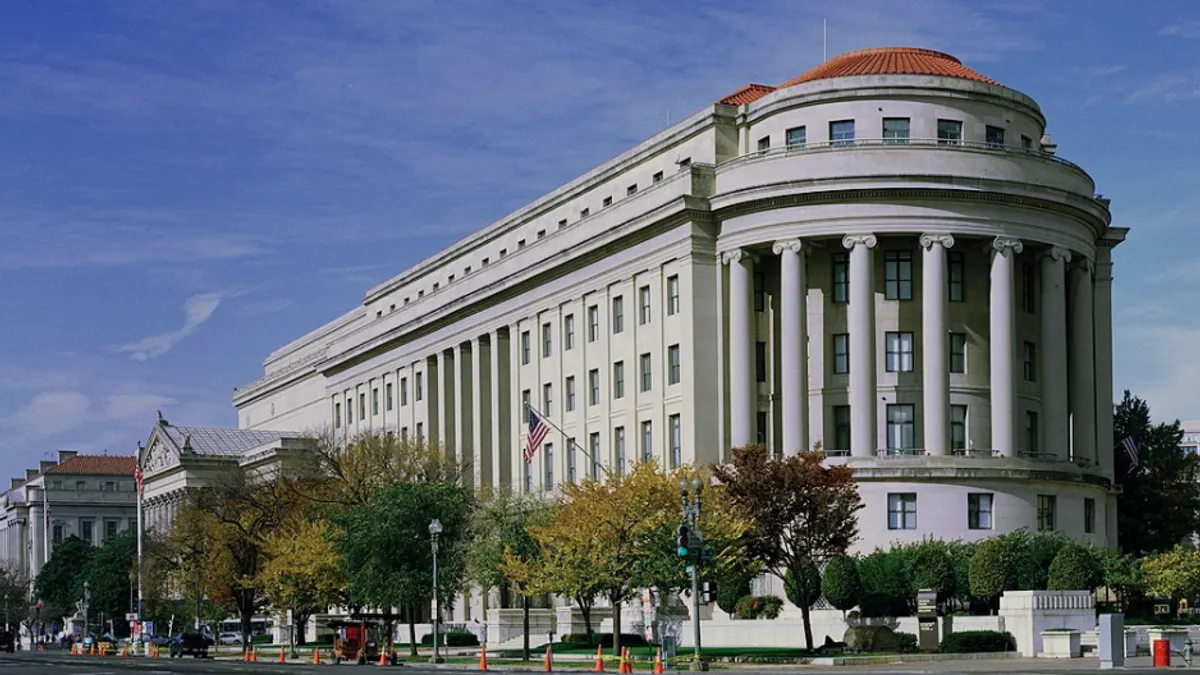Dive Brief:
- LendingClub last week agreed to pay $18 million to resolve a three-year battle with the Federal Trade Commission (FTC), which said the online lender made deceptive statements to customers regarding fees and whether they were approved for loans.
- The FTC sued LendingClub in 2018, alleging borrowers were charged origination fees of $1,000 or more, even though the company advertised "no hidden fees." The regulator also alleged the lender told customers they were approved for loans when they were not, and took money from their bank accounts without consent.
- A federal judge last summer granted LendingClub a stay in the dispute pending a Supreme Court ruling on a related matter.
Dive Insight:
Last week’s settlement bars LendingClub from making misrepresentations to loan applicants and requires the company to "clearly and conspicuously" disclose origination fees and the total amount borrowers will receive.
But much has changed since the dispute began in 2018. LendingClub bought Radius Bank last year, putting it on a path to oversight by different regulators. It also overhauled aspects of its business model, exiting the peer-to-peer lending space in which it was a pioneer.
Other changes appear to be coming in regulation at large. In the Supreme Court case, now-jailed race car driver-turned-payday entrepreneur Scott Tucker argued the FTC incorrectly interpreted the FTC Act as giving it the authority to bypass administrative processes and go directly to court to obtain monetary relief.
The Supreme Court, in an April ruling, sided unanimously with Tucker. But Justice Stephen Breyer, writing for the court, noted the FTC could use another legal basis to seek restitution — a route that might be more time-consuming and could give lenders more leverage.
"This is a full-body blow to the FTC’s enforcement powers and places a significant amount of more recent FTC orders for monetary relief in jeopardy," lawyers at Manatt Phelps & Phillips wrote following the decision, according to American Banker.
In the LendingClub dispute, a court earlier found the company falsely told applicants their loans were "on the way" and "100% backed" even though many would never get a loan. The FTC also alleged in its complaint that LendingClub withdrew double payments from customers’ accounts and charged those who canceled automatic payments or paid off their loan.
LendingClub did not admit wrongdoing in the settlement and said it has set aside the penalty amount, which will go toward customer remediation.
"While we have never agreed with the FTC's allegations, we appreciate the important role the FTC plays to protect consumers and are pleased to have reached an agreement that resolves the agency's concerns," Brandon Pace, LendingClub’s chief administrative officer, said in a press release, according to American Banker.
The FTC approved the settlement by a 4-0-1 vote. Newly installed Chair Lina Khan did not participate.
"Companies that profit by preying on consumers don’t just harm the families they cheated — they also harm their competitors that play by the rules," Samuel Levine, acting director of the FTC’s consumer protection bureau, said Thursday in a press release. "LendingClub fleeced consumers looking for a loan online."














